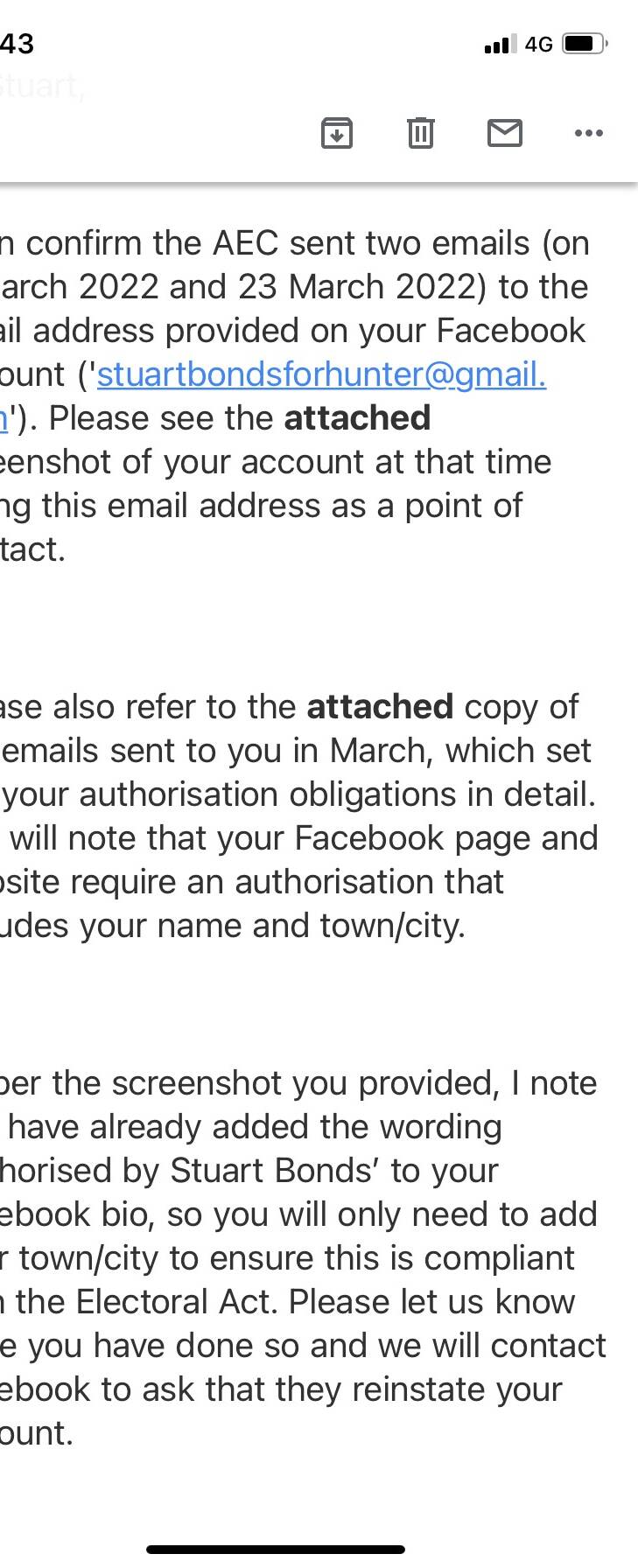




THE Australian Electoral Commission has confirmed it asked Facebook to take down a "Stuart Bonds for Hunter" Facebook page because it did have an "authorised by" statement.
The AEC has confirmed it took the action after an "external referral", saying it did not "proactively" check social media for compliance with what it says was a breach of the Electoral Act.
In a written statement to Mr Bonds yesterday, the AEC said it would contact Facebook to ask it to "reinstate" his account once he had added the wording "authorised by Stuart Bonds" and his city or town of residence.
Late yesterday Facebook confirmed it had taken down the page because the AEC had complained it failed to declare Mr Bonds was a candidate and was misleading.
It said it would reinstate the page once the AEC told it that it was no longer in breach.
The Newcastle Herald reported earlier this week on the problems Mr Bonds had found with his Facebook page.
Mr Bonds said he was glad the problem was sorted, but took issue with the action against him, saying at the time the AEC sent the first email "I had not even decided to run".
"As far as I knew, the requirement to say it was authorised by me only applied once the writs were issued, which was last Sunday (April 10)," Mr Bonds said.
"The AEC sent two emails, on March 2 and March 23, which I didn't find until Monday because they went straight into the Facebook page email spam and I didn't know they were there," Mr Bonds said.
"It's a Facebook page. If I had known I needed to do that I certainly would have, but I wasn't a candidate for anything until I nominated on Monday and all of this happened well before that. I've got a website, stuartbonds.com, and I've authorised that.
"I'd been thinking that it was about content because all I knew initially was Facebook telling me I'd broken a law and was geo-blocked.
"But the fact that someone has complained about this back in March, with an election coming up, makes you wonder who would have done it.
"I also think the AEC could have tried a bit harder to ensure I knew before it complained to Facebook, given how hard it was to get answers given Facebook wouldn't say who did it."
In letters to Mr Bonds and in statements to the Herald, the AEC said the lack of authorisation meant he was in breach of Section 321D of the Electoral Act.
But Mr Bonds said the opening lines of Section 321D stated that it applied if "all of the following apply" including the matter being "an electoral advertisement" and some or all of it "was paid for".
"I'm happy to comply, but I can't see how Section 321D can apply to a Facebook page on that basis," Mr Bonds said.
The AEC would not say who complained about the Facebook page.








